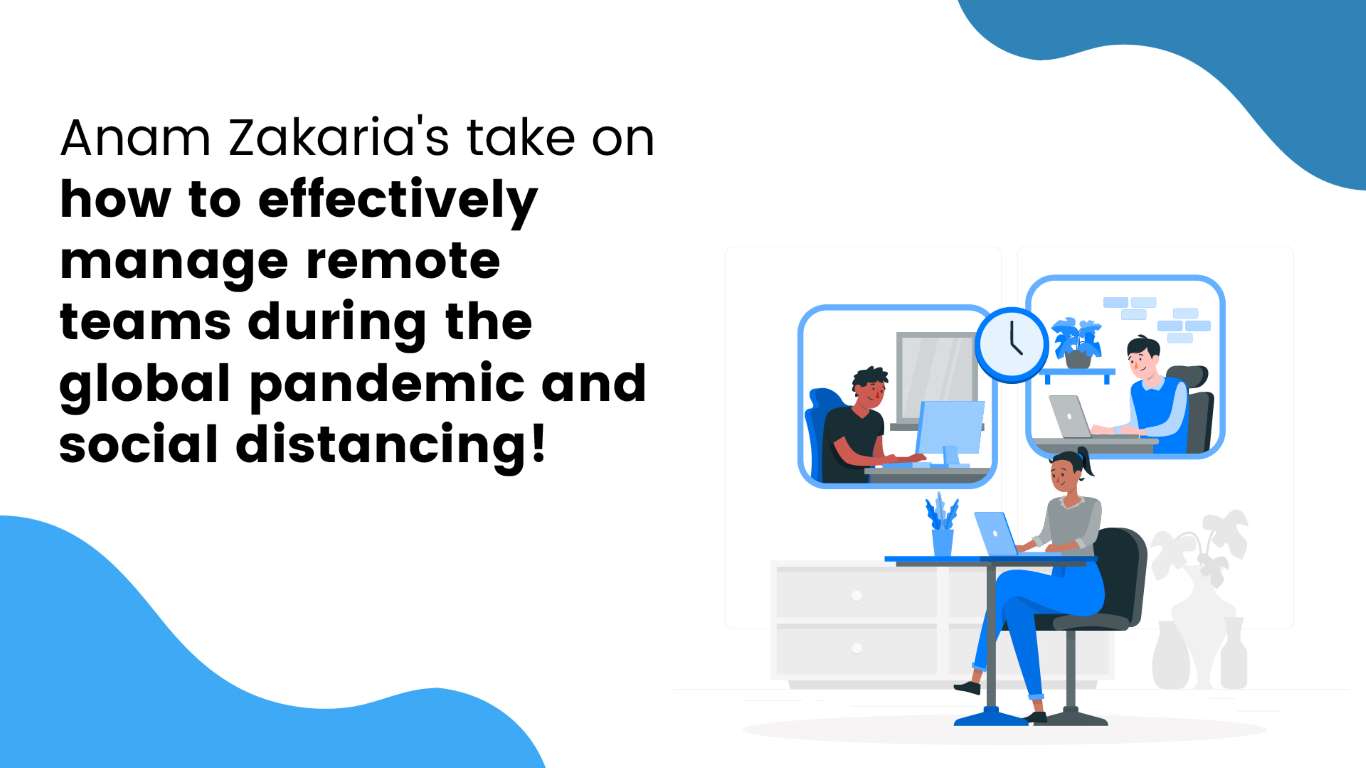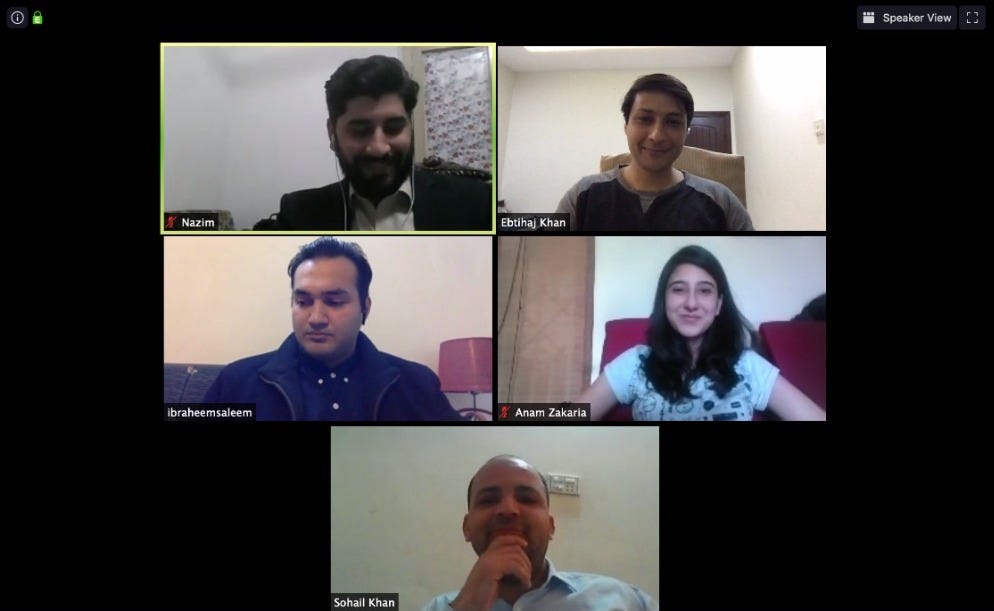
As Covid-19 presents the world with unprecedented challenges, many of us are scrambling to maintain some sense of normalcy and continuity in our lives. Big global giants like Apple, Google and Amazon as well as smaller local companies, NGOs, banks and institutions are encouraging employees and staff to work from home (WFH) where possible. Remote work is a new reality for many of us. However, several other organizations and people have already been promoting WFH for several years now. Remote work has been an increasing feature in certain fields and industries. Though the current pandemic, which is forcing people into their homes, has stark differences from remote work in ordinary circumstances — where WFH can offer flexibility and choice rather than mandatory isolation — there are learnings which can be helpful in these times.
As someone who has been working remotely since 2013, managing volunteers and teams spread out across Pakistan as well as globally, there are a few practices that I find critical to ensuring success as a manager/supervisor. In no particular order, I offer four guidelines that have helped me over the past 7 years both at Code for Pakistan and my earlier work at The Association for the Development of Pakistan.
Setting up regular and effective communication channels that work for you and your team
We all know that communication is a key ingredient for ensuring coordination, keeping everyone on the same page, and managing challenges before they escalate into major conflicts in any work situation. Communication becomes all the more critical in a WFH situation, especially when work requires us to collaborate and co-create. I don’t believe there is one channel or frequency that works for everyone but it is essential to brainstorm with your co-workers and team to figure out what works best. For some organizations, video calls where multiple people can be online at the same time and respond in real time is essential. For others, e-mail/whatsapp/slack are better than calls, particularly if people have young children at home, are in different time zones, don’t have private rooms or space at home to have a quiet conversation or are confronted with miscellaneous other factors. This is a difficult time for people, and everyone is struggling/coping in unique ways (for more insights, see this blog post by my colleague on WFH). I have found that in some situations an overemphasis on calls, particularly video calls, can add pressure and lead to burn out, especially for employees who may have challenging home environments but feel they must show up with a pretense of normalcy and uninterrupted availability. The point is, situations vary as do team dynamics and work requirements. Maybe a mix of different mediums works best for you, your co-workers, supervisees and supervisors. You won’t know till you ask.

Knowing your co-workers/teams beyond their professional skills
This brings me to my second point. While I understand that team size varies and this may not be possible for everyone, if your team is small and tight knit enough, as a manager you may want to go the extra mile to check in with your team beyond work tasks. This is applicable in any situation but even more so now when your colleagues are home-bound. You may find that some of them are taking care of an ill family member, others are struggling with chronic health issues, anxiety or mental health concerns, child care responsibilities or other challenges. Of course, do not unnecessarily probe and DO NOT misuse this information but do try to build meaningful relationships especially at a time when many of us find ourselves isolated. This will help you understand the unique positions your staff or peers find themselves in (and hopefully provide you with a sharing space as well — we all need it!) and enable an opportunity to work together and create a safe and feasible WFH environment which results in productivity rather than burn out or an overwhelmed staff.
Focusing on the deliverable not the work hours
While a lot of organizations emphasize heavily on attendance and sign in / sign out timings, the current situation may require us to be more flexible. As mentioned earlier, people don’t have standardized home environments (that one finds in offices). I know friends and peers who work most effectively when their children are napping or asleep late at night. Others try to get the work out of the way in the wee hours or work extra hours on weekends to make up for the time spent working with children on their homework and assignments during the week. Everyone’s situation is different. Know that you can not enforce the same routines and rigid office hours in everyone’s homes. Instead focus on deliverables. Set weekly milestones with your team and peers and sync up regularly (again the frequency may vary) to make sure everyone is on track. If they are falling behind, check in and see what’s going on and how you or others in the organization may be able to help. Focus on the work not the nitty gritties of who is actually up and online by 9 am.
Knowing that your team might know far more about the onground situation than you do
For me, this is essential in all remote work situations and not just limited to the current pandemic. As somebody who has been working in the development sector since the past 10 years, I am aware that strategies are often made in centers far removed from where they are meant to be implemented. However, in other fields and sectors too, you may have a situation where work plans and annual strategies are devised far away from where they are executed. If you are a manager who supervises a remote team, of course you have been hired because you have the right skills for the job and enough know-how. Yet, also know that your staff on ground may be far more attuned than you are regarding local bureaucracy, sensitivities, community dynamics and/or politics. Situations may call for you to defer to their judgement. Amidst Covid-19, every country is responding at a different pace, each province, state or city may be following different guidelines. Your reality may differ from that of your colleagues. It is important to ensure that you keep an open communication channel, regularly solicit feedback and check in with them on how the situation is unfolding and how it is impacting their immediate surroundings. You can learn from those on ground as much as they can learn from you.
This is far from an exhaustive list and many of these points may seem obvious but in my experience, they can make a real difference in productivity and building meaningful work relationships. I hope they help you as they have helped me during this crisis and beyond!
Written by: Anam Zakaria
Anam Zakaria is a development professional, oral historian and the author of three books. Since 2016, she has been leading Code for Pakistan’s Government Innovation Fellowship Program.